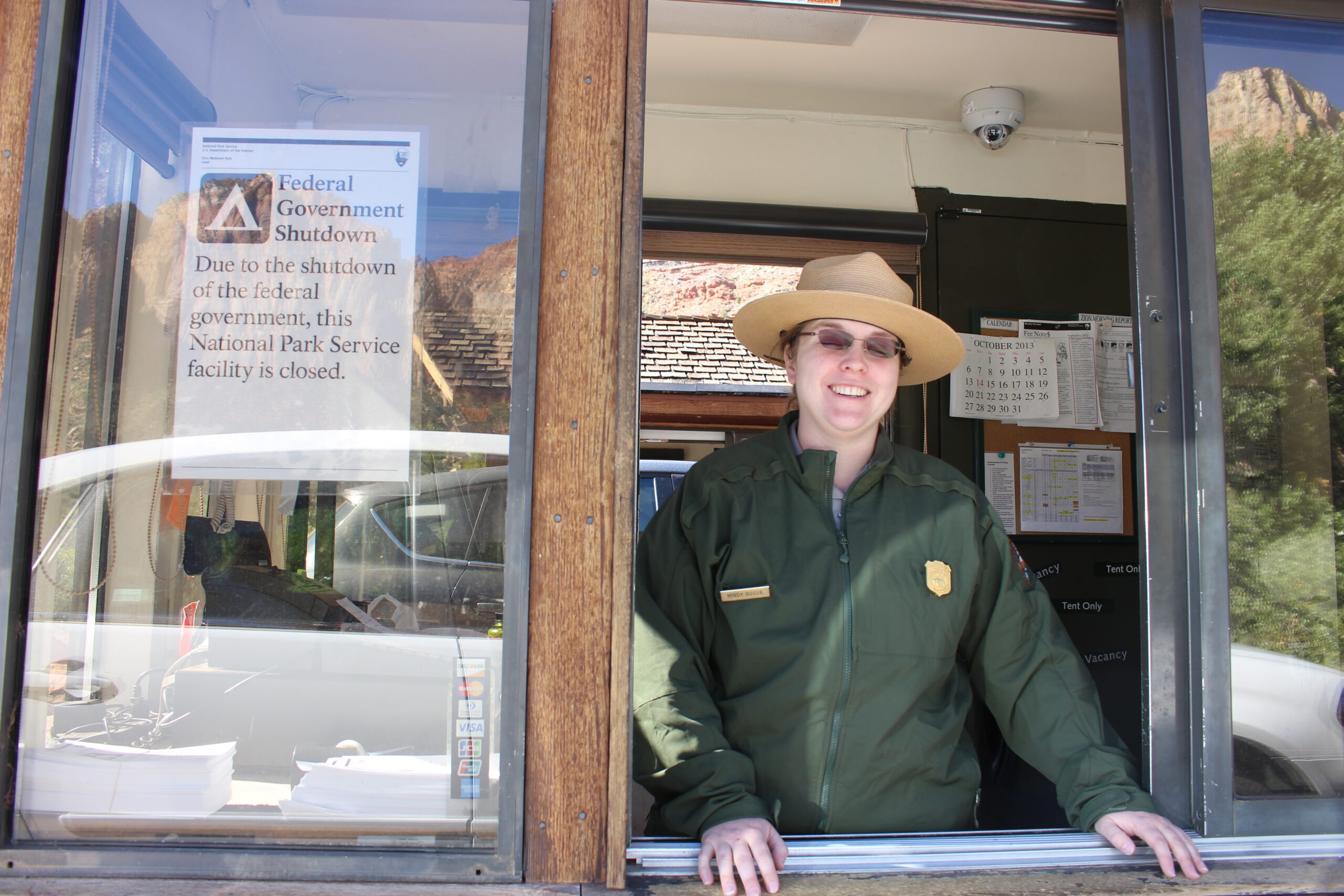By Christina Marin, MPP’14
One of the unique aspects of studying at the Kennedy School is how news events anywhere in the world can have a personal effect on one (or many) members of the community. This year was no different. Whether it was the government shutdown, the rebound of the Boston Marathon or the civil unrest in Venezuela, worldwide events touched us here in Cambridge.
There were also events during the school year with an impact unique to the HKS community, whether it was a SpeakOut campaign encouraging students to recognize issues of diversity, the death of a recent alumnus, or the departure of the head of the Institute of Politics, Trey Grayson.
Here’s a look back at the events that marked the student experience during the 2013-2014 school year:
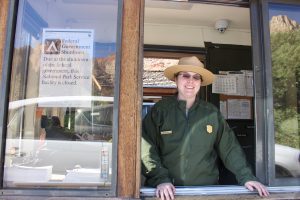
Some students come to the United States to learn more about its system of governance; to understand how the country has maintained stability while promoting democracy and independence for over two centuries. Yet, the government shutdown in October revealed just how imperfect the United States system of governance is. For sixteen days, the government closed down national parks and monuments, told non-essential employees to stay home, and switched off many government Web sites as they disputed the funding of the Affordable Care Act. During the shutdown, media outlets turned to HKS faculty to weigh in on the stalemate in Congress. Even students had their moment in the spotlight when a National Public Radio reporter wandered down the HKS driveway to speak to those on their way to class. Aaron Quarles, first year policy student and a joint degree with the medical school, told the reporter, “We really kind of identify this as a failure of leadership on multiple sides. The fact that we were going to drive our nation off a cliff, it’s pretty sad.” Alister Martin, also a first year policy student, was optimistic about future generations’ ability to make a change. He said, “Certainly, people have dropped the ball. It doesn’t mean that we will. It’s our duty to come here and to learn from each other how to make things right.”
2. Harvard President Drew Faust launches capital campaign; Kennedy School looks to raise money for renovations
With one of the largest expansion projects in its history on the horizon, Harvard University launched a capital campaign in September with a goal of raising $6.5 billion by 2018. The 378-year-old university which is already sitting on an endowment larger than most country’s GDPs (at $33 billion) plans to build a new hotel, engineering complex, retail and residential housing development and basketball facilities in Allston, near the Harvard Business School. The Kennedy School has joined in the effort as it looks to undertake a major campus renovation in the next few years. Among the goals of the Kennedy School renovation are to improve movement through and among the buildings, create more office and classroom space, enhance the aesthetics of the entry to the school and expand the dining area. Dean David Ellwood is also hoping to raise money for increased financial aid.

A beloved member of the MPA Class of 2013, Mariana Filgueira Risso, died suddenly on Dec. 8 in her home country of Argentina. Pegged by many of her classmates to be the future president of Argentina, Filgueira was a psychiatrist in Argentina who attended the Kennedy School with her husband Francisco Lanus, a 2013 Mason Fellow. She had just begun work in health services in the Buenos Aires city government when she lost her life in a motorcycle accident. News of her death sped through social media and dozens of her classmates posted on blogs, sent messages to her husband, and filled her Facebook wall. A memorial service was organized on campus and many shared their memories of Filgueira. Rizwan Tufail, a Mason Fellow who is now working as an entrepreneur in residence at the Harvard iLab, wrote, “What impressed me the most was her deep commitment to her country, and to leaving this world a better place; her departure has increased the workload for all of us who dream of a better – more just – world.”
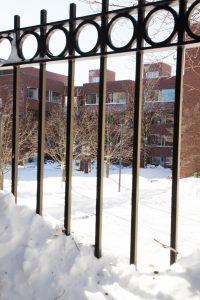
It was only the 53rd coldest winter on record in Boston, but persistent sub-freezing temperatures this year led even local Bostonians to complain. North America was gripped by a polar vortex (a term relatively unknown to the general public before January 2014), which is an arctic outbreak in which cold temperatures are pushed far further south than normal. The result? School closures in the Midwest, gas shortages throughout North America and record cold temperatures. HKS students reacted by hibernating in the library or their apartments, and pulling on four or five layers of clothes before heading to class. What remains to be seen is whether the cold temperatures convinced far fewer graduating students to remain in the northeast for employment.
5. HKS alum leads Venezuelan opposition movement
Responding to skyrocketing inflation, a scarcity of goods, and an intensification of crime; Leopoldo López, MPP’96, led a movement against the administration of Venezuelan President Nicolás Maduro. He aimed to force the resignation of Hugo Chavez’s hand-picked replacement through large protests and demonstrations in a campaign referred to as ‘La Salida’ or the Exit. He called on the Venezuelan people to demand a change and an alternative to the living conditions triggered by the policies of the current government. After several of the demonstrations resulted in gunfire, deaths and injuries; the Venezuelan government charged López with arson, terrorism and homicide. He turned himself into authorities on February 18. This year, the Kennedy School is awarding him the Alumni Achievement Award. Because he remains imprisoned, he will be the first person to receive the award in absentia.
6. Weighing in on Russia
This was a big year for Russia in world headlines: First with President Vladimir Putin’s decision to shelter Edward Snowden, then with the Winter Olympics in Sochi and finally with the annexation of Crimea. As to be expected, members of the Harvard Kennedy School community had something to say about each of them.
Writing for The Financial Times on the Snowden case last summer, Professor Stephen Walt said, “Pardoning Mr. Snowden would surely provoke howls of protest from the intelligence community, which hopes to deter future leakers by making an example of him. But a pardon for him is unlikely to trigger a wave of imitators; how many other insiders would sacrifice their jobs and risk their freedom because Mr Snowden got a reprieve?”
And, in a research round-up of academic studies on the economic benefits (or costs) of hosting Olympics, John Wihbey from the Shorenstein Center’s Journalist’s Resource (housed at the Harvard Kennedy School) wrote: “The Olympics are about competition and heroics and national pride. But they are also about big business. Host cities invest deeply in the games — for example, the ballooning price tag of the Sochi Winter Olympics is now estimated to be more than $50 billion … So what have we learned about hosting the Olympics and the proverbial “bottom line”? He concludes, “Long after the crowds vanished, it turned out that some host cities and countries ended up taking large net losses on their investments.”
In a May 2014 article in The Daily Beast, Professor Meghan O’Sullivan wrote: “The Obama administration and its allies are placing high hopes in the ability of sanctions to sway Russian actions and generally contest Russia’s annexation of Crimea and meddling in the Ukraine. Yet, if lessons gleaned from other sanctions episodes are any indication, the sanctions in place today have little hope of reversing Russian aggressive or curbing Putin’s drive to re-establish Russian dominance of the country’s “near abroad.”
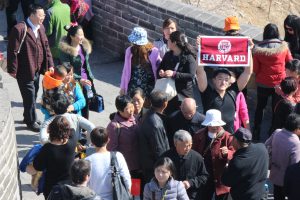
Every year during spring break, students travel to all corners of the globe to visit the home countries of their fellow classmates. These aren’t just any spring breaks but ones packed with meetings with local leaders and dignitaries, planned alongside visits to government offices and business headquarters, and peppered with cultural and gastronomical experiences. This year was no different: Students visited Japan, China, North Korea, Palestine, Israel and Colombia, among others. In North Korea, they traveled under a type of house arrest, where they were carefully watched by escorts and scowled at if they laughed or smiled. In China, they witnessed the result of the country’s economic boom, reflected in newly-planned metropolitan areas and multi-million dollar housing developments. In Japan, students saw the reconstruction efforts which have followed the 2011 tsunami and visited the Japanese legislature, where a surprising percentage of the members are graduates of HKS. In Palestine, students experienced an emotional rollercoaster as they unraveled layers of conflict, oppression and resilience through their meetings with local activists, leaders and everyday citizens.
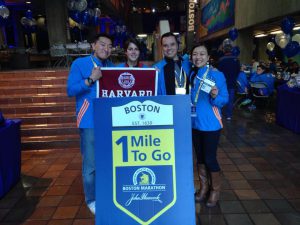
One year after a bombing at the finish line of the Boston marathon killed three and injured more than 200; the City of Boston held its 2014 marathon with the second highest number of runners in the marathon’s 118-year history (35,671 runners). Nathan Finney and Billy Pope, two HKS’13 graduates, returned to complete the race which was cut short last year. Due to the bombings, they were turned away within a mile of the finish. This year, they both completed the run and, whether they knew it or not, dozens of Kennedy School students were on the course to cheer them on.
9. HKS Speak Out succeeds in adding “privilege-checking” training to orientation programming
In late spring, signs began to appear on the corners of blackboards, in the stalls of bathrooms, on the backs of chairs; prompting students to think about diversity in new ways. “What identifies you at HKS?” and “Tell me of a time when you felt uncomfortable speaking at HKS because of your identity”, the signs read. The Speak Out campaign, spearheaded by first-year public policy students, was intended to help students rethink diversity.
“One of the goals of the campaign is to find out what diversity looks like at HKS and to have people question their assumptions about identify and diversity,” Debbie Chen, MPP’ 15, told The Citizen. “All too often diversity is just thought to be racial or ethnic diversity, but this campaign is meant to show a broader view of diversity.”
The students succeeded in making diversity training part of orientation for incoming students. They were written up in New York Magazine’s “The Cut” in a May 13 article, entitled “Harvard’s Kennedy School Adds Privilege-Checking to New-Student Orientation” for succeeding in adding a “pilot program for institutionalized privilege-checking” to the mandatory curriculum.

Former secretary of state in Kentucky and 2010 candidate for US Senate, Trey Grayson, announced in April that he is stepping down as head of the Institute of Politics where he served for the past three years. He cited an interest in returning to Kentucky and spending time with his two young daughters. During his time at Harvard, he grew the young voter polling project, pushed for increased use of digital media, and fostered greater undergraduate student interest in programming. The Harvard College alum appeared for his last forum event in a debate with Rand Paul, his 2010 opponent for US Senate.
